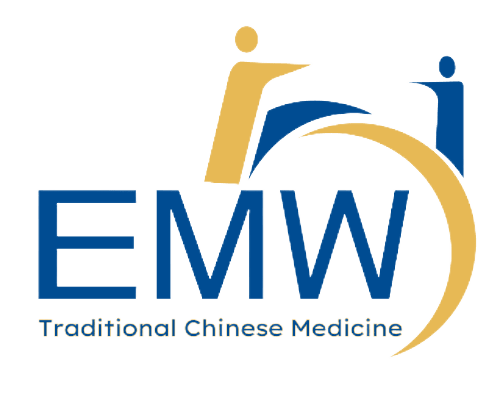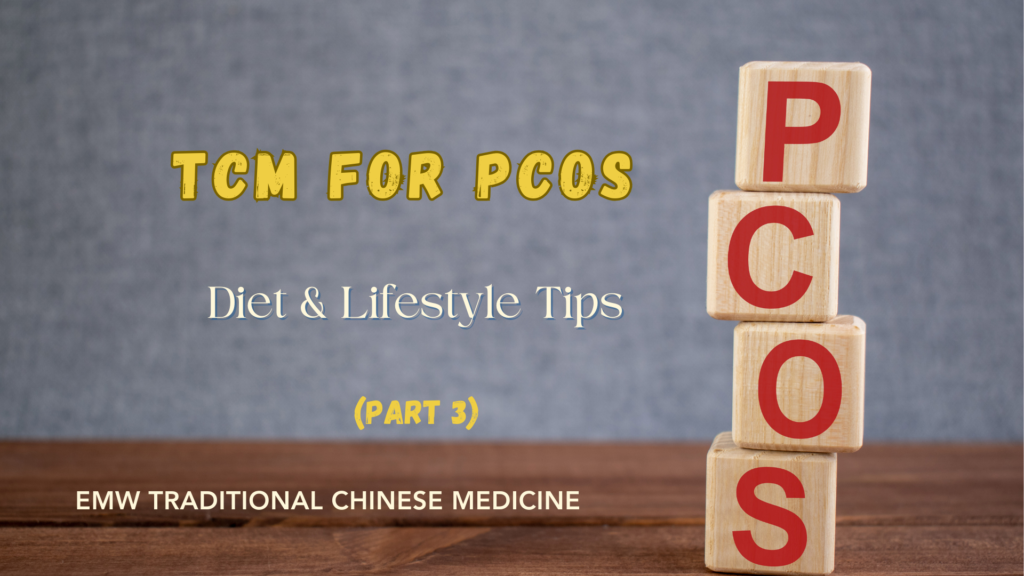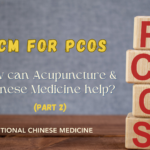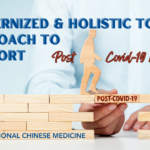PCOS Diet And Lifestyle Tips
As PCOS is closely linked to metabolic disorders such as obesity and insulin resistance, diet and lifestyle modifications are proven to be an essential part of managing your PCOS by regulating your blood sugar levels and balancing your hormone[1]. Besides working with a TCM physician for your particular diagnosis and incorporating CHMs and acupuncture/moxibustion into your regime, keeping an active lifestyle, a healthy diet and a well mental state can also help rebalance your body.
Dietary suggestions:
- Eat regularly. Regular meal times or eating every 3 to 4 hours stabilises blood sugar levels and promotes weight loss.
- Choose low glycemic index (GI) carbohydrates and whole grains. GI is a scale that measures how quickly carbohydrate-containing foods raise blood glucose levels. Low GI foods are broken down more slowly and cause a gradual rise in blood sugar levels. They can curb blood sugar spikes, reduce insulin resistance and lower the risk of diabetes. Low GI carbs and whole grains include barley, buckwheat, black rice, rolled oats, bulgur, rye, quinoa, and legumes (black beans, red beans, mung beans, chickpeas, yellow lentils, etc).
- Have balanced meals. Balance each of your meals by including protein-rich foods (meat, fish, eggs, beans, pulses, tofu, nuts and seeds), healthy fats (olive oil, nuts and seeds, rapeseed oil, and avocados), and low GI fruits (citrus, berries, apples, pears, etc) or non-starchy vegetables (carrots, mushrooms, onions, aubergine, radish, etc), in addition to low GI carbs. This helps you stay fuller for a longer period and suppresses cravings.
- Include leafy greens. Include 2 servings of leafy greens every day. Leafy greens contain indole-3 carbinol (I3C), which helps to regulate liver function which is essential for the metabolism of hormones and glucose. Leafy greens include kale, broccoli, lettuce, bok choy, cabbage, etc.
- Include omega-3 fats. Omega-3 fats help lower inflammation responses in the body which are commonly seen in those with PCOS. Omega-3 fats-rich foods include walnuts, chia and flaxseeds, seaweed, algae, soybean oil, salmon, mackerel, etc.
Avoid:
- Refined carbohydrates. Refined carbs impair glucose metabolism. They have a high GI and are digested quickly, leading to rapid spikes in blood sugar and insulin levels after meals. Refined carbs include white sugars, white flour, whole wheat flour and products made from them (pasta, bread, desserts, etc).
- Milk and dairy products. They are considered damp and phlegm-producing foods according to TCM theory. The same goes for cold and raw drinks and foods (yes, too many salads are bad for you!), greasy and fried foods, processed carbs and sugars, and alcohol. They impair the function of the Spleen and may exacerbate the symptoms of PCOS.
- Sodas, fruit juice and energy drinks. They raise blood glucose levels rapidly, leading to tiredness and increased hunger, contributing to increased weight gain.
PCOS Diet And Lifestyle - Other tips
- Engage in moderate exercises. For at least 30 min per day, at least five days a week. Moderate exercises include yoga, pilates, brisk walking, etc. Physical activities have shown to be able to reverse diabetes and improve insulin sensitivity as well as help with weight control.
- Give up smoking and drinking. Smoking and drinking can potentially increase both metabolic syndrome and elevated androgen levels in women with PCOS.
- Include stress management tools. Women with PCOS often have chronic inflammation throughout the body, which is associated with high cortisol levels. A high cortisol level in the body exacerbates stress and depression and increases the risk of developing insulin resistance. Practising meditation, breathing techniques and regular exercise help to lower cortisol levels if you find yourself stressed or frustrated regularly.
Contact us to make an appointment if you have been diagnosed with PCOS or have problems with ovulation and conceiving.
References:
[1] Panidis, D., Tziomalos, K., Papadakis, E., et al. (2013). Lifestyle intervention and anti-obesity therapies in the polycystic ovary syndrome: impact on metabolism and fertility. Endocrine, 44(3), 583–590. https://doi.org/10.1007/s12020-013-9971-5






